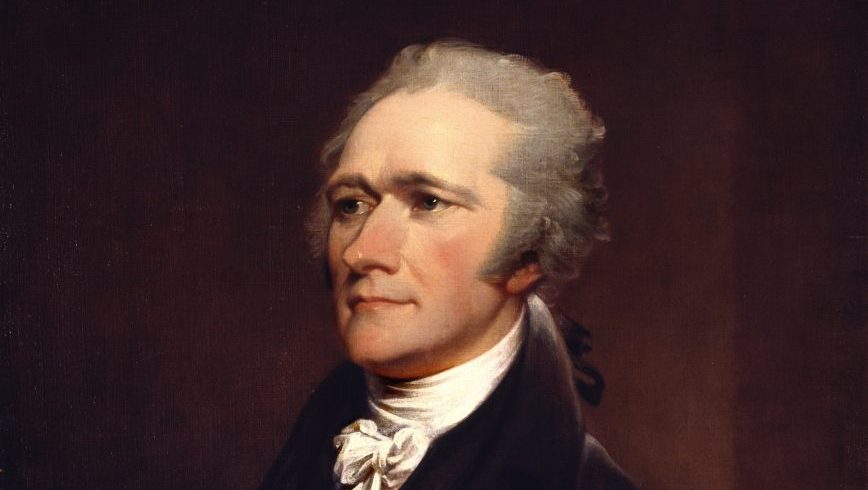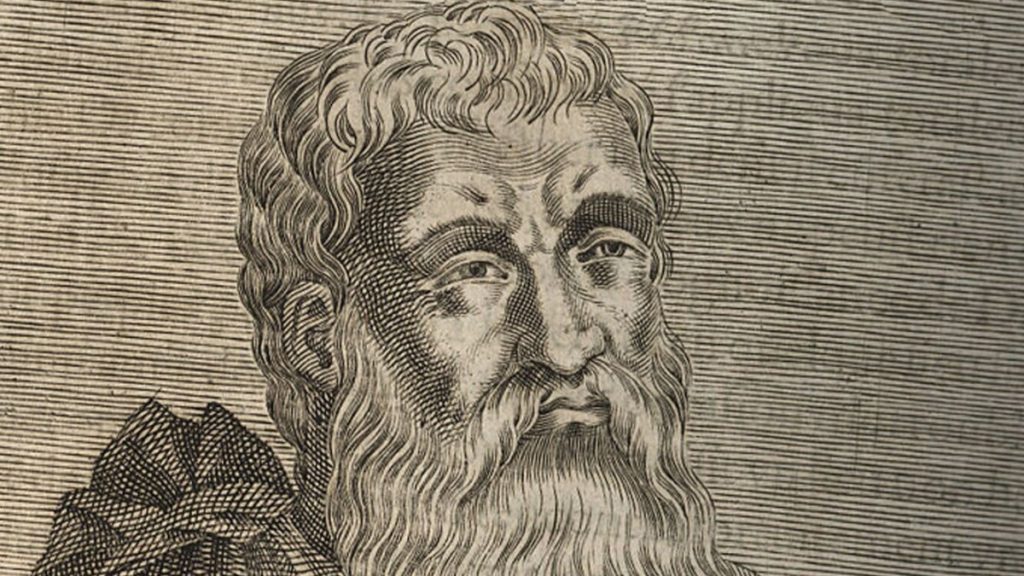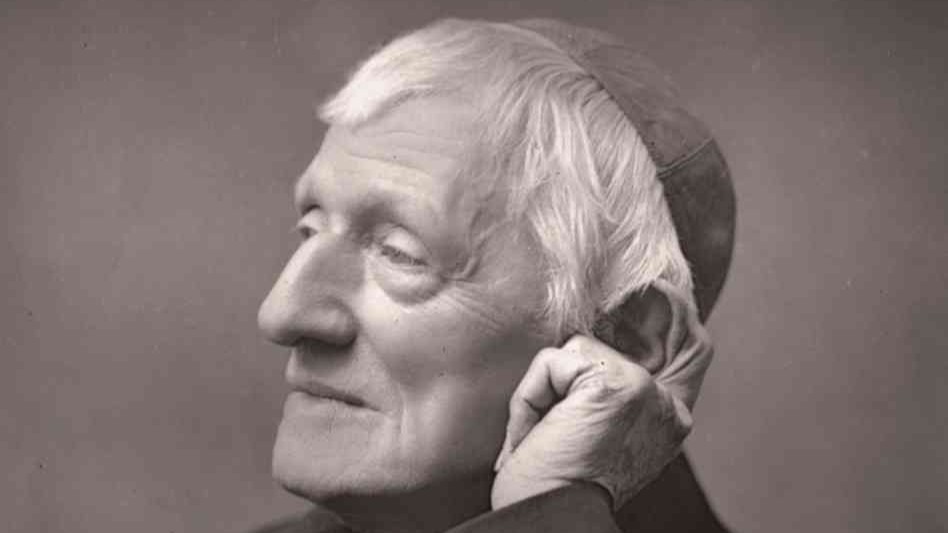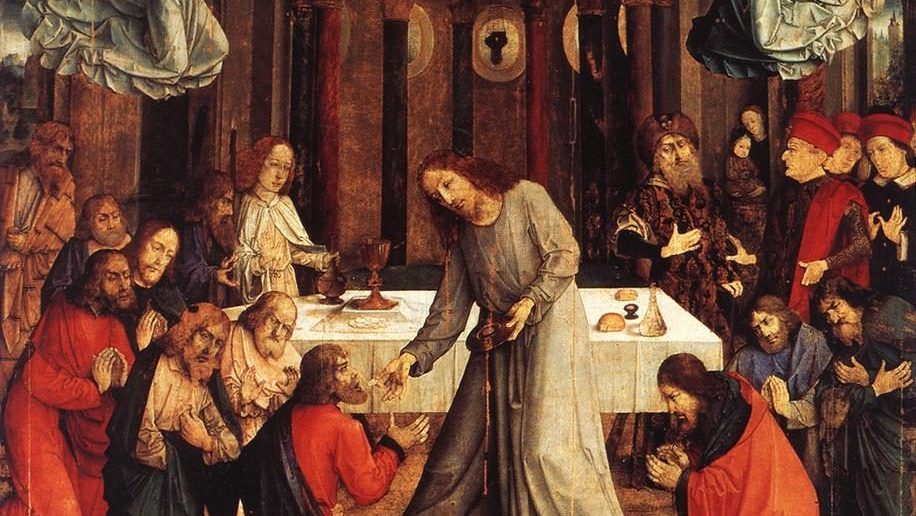(Updated May 28, 2025)
Alexander Hamilton (1755-1804) was am American Founder who served as the United States’ first Secretary of the Treasury. He was a delegate to the Constitutional Convention, and was one of the co-authors of the Federalist Papers, a classic American political text that argued in favor of ratifying the Constitution.
Writings
Alexander Hamilton, The Farmer Refuted (February 5, 1775)
Good and wise men, in all ages…have supposed, that the deity, from the relations, we stand in, to himself and to each other, has constituted an eternal and immutable law, which is, indispensably, obligatory upon all mankind, prior to any human institution whatever.
This is what is called the law of nature, “which, being coeval with mankind, and dictated by God himself, is, of course, superior in obligation to any other. It is binding over all the globe, in all countries, and at all times. No human laws are of any validity, if contrary to this; and such of them as are valid, derive all their authority, mediately, or immediately, from this original.” [Blackstone, Commentaries, Introduction to Section II, “Of the Nature of Laws in general”]
Upon this law, depend the natural rights of mankind, the supreme being gave existence to man, together with the means of preserving and beatifying that existence. He endowed him with rational faculties, by the help of which, to discern and pursue such things, as were consistent with his duty and interest, and invested him with an inviolable right to personal liberty, and personal safety….
The fundamental source of all your errors, sophisms and false reasonings is a total ignorance of the natural rights of mankind. Were you once to become acquainted with these, you could never entertain a thought, that all men are not, by nature, entitled to a parity of privileges. You would be convinced, that natural liberty is a gift of the beneficent Creator to the whole human race, and that civil liberty is founded in that; and cannot be wrested from any people, without the most manifest violation of justice. Civil liberty, is only natural liberty, modified and secured by the sanctions of civil society. It is not a thing, in its own nature, precarious and dependent on human will and caprice; but is conformable to the constitution of man, as well as necessary to the well-being of society…
The Sacred Rights of mankind are not to be rummaged for among old parchments or musty records. They are written, as with a sunbeam, in the whole volume of human nature, by the hand of the Divinity itself, and can never be erased or obscured by mortal power.
Speeches and Public Proclamations
Alexander Hamilton, Remarks on the Quebec Bill (June 22, 1775)
The characteristic difference between a tolerated and established religion consist in this—With respect to the support of the former, the law is passive and improvident; leaving it to those, who profess it, to make as much, or as little provision, as they shall judge expedient; and to vary and alter that provision, as their circumstances may require. In this manner, the Presbyterians and other sects are tolerated in England. They are allowed to exercise their religion without molestation; and to maintain their clergy as they think proper. These are wholly dependent upon their congregations, and can exact no more than they stipulate and are satisfied to contribute. But with respect to the support of the latter, the law is active and provident. Certain precise dues (tithes, etc.) are legally annexed to the clerical office, independent on the liberal contributions of the people; which is exactly the case with the Canadian priests, and therefore no reasonable impartial man will doubt, that the religion of the church of Rome is established in Canada. While tithes were the free, though customary, gift of the people, as was the case before the passing of the act in question, the Romish church was only in a state of toleration. But when the law came to take cognizance of them; and, by determining their permanent existence, destroyed the free agency of the people; it then resumed the nature of an establishment, which it had been divested of, at the time of the capitulation.
Letters and Private Documents
Alexander Hamilton, To John Laurens (August 15, 1782)
Peace made, My Dear friend, a new scene opens. The object then will be to make our independence a blessing. To do this we must secure our union on solid foundations; an herculean task and to effect which mountains of prejudice must be leveled!
It requires all the virtue and all the abilities of the Country. Quit your sword my friend, put on the toga, come to Congress. We know each others sentiments, our views are the same: we have fought side by side to make America free, let us hand in hand struggle to make her happy.
Alexander Hamilton, Comments on Jews (date unknown)
& progress of the Jews and their [space] from their earliest history to the present time has been & is, entirely out of the ordinary course of human affairs. Is it not then a fair conclusion that the cause also is an extraordinary one—in other words that it is the effect of some great providential plan? The man who will draw this Conclusion will look for the solution in the Bible. He who will not draw it ought to give us another fair solution.
Alexander Hamilton, Statement Regarding the Duel with [Aaron] Burr (July 10, 1804)1
My religious and moral principles are strongly opposed to the practice of dueling, and it would even give me pain to be obliged to shed the blood of a fellow creature in a private combat forbidden by the laws.








